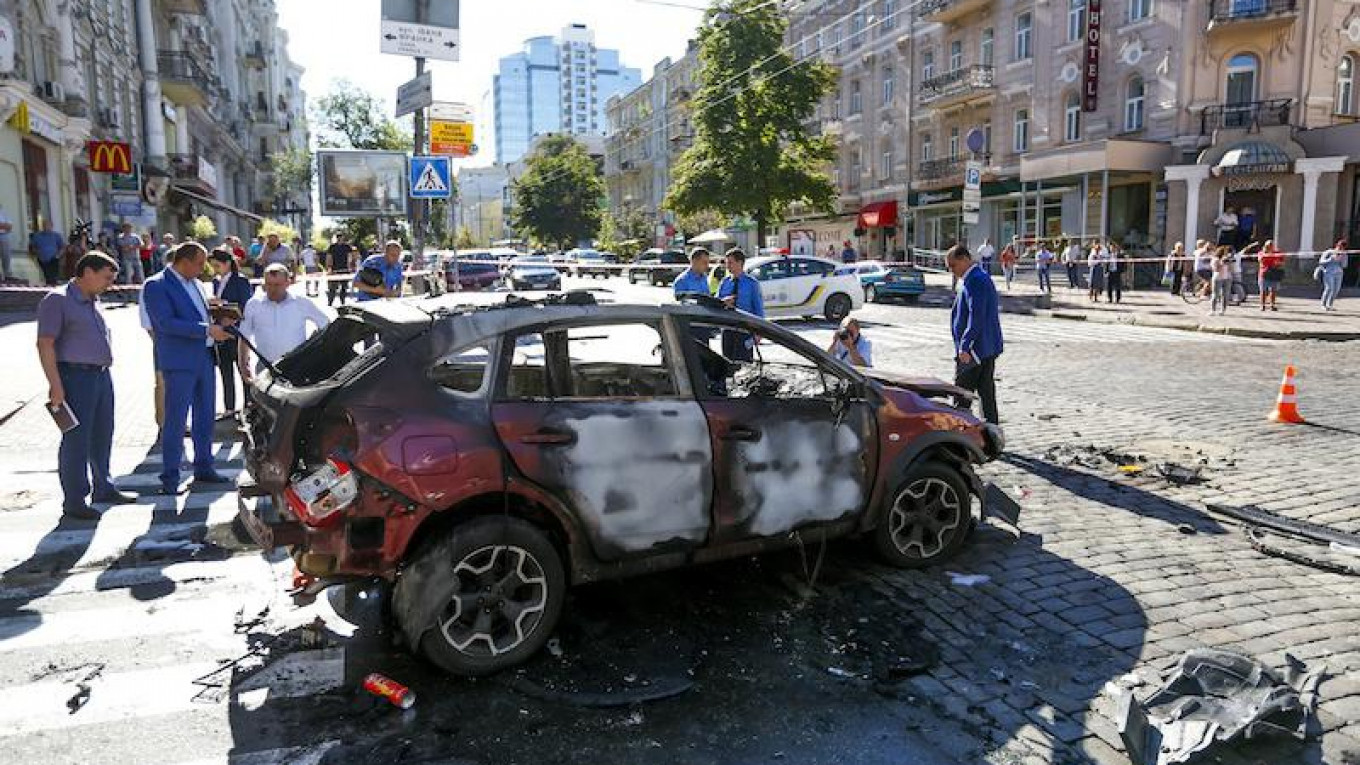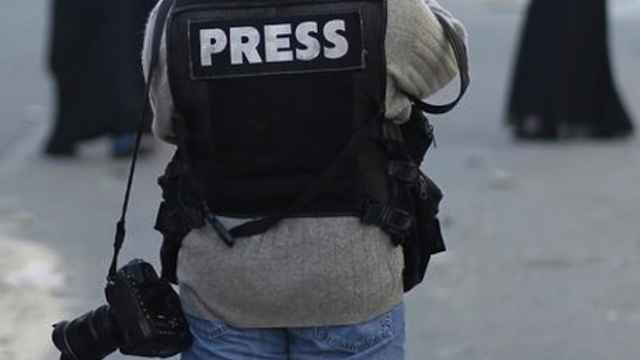Ukranian-Belarussian journalist Pavel Sheremet has been killed by a car bomb in central Kiev.
Sheremet, who was born in Minsk but worked in Ukraine, was driving to work when a blast went off in the car at 7:45 a.m. this morning, the RBC newspaper reported Wednesday.
The car which Sheremet was driving at the time of the attack belonged to Olena Prytula, head of Ukrainskaya Pravda. She was not in the car at the time of the explosion, RBC reported.
Friends of the pair told The Moscow Times that both Sheremet and Prytula used the car, and that it was unclear which journalist had been targeted by the bomb.
Both were a prominent investigative journalists who had made enemies across the political spectrum through hard-hitting investigations.
Sheremet worked for the Ukrainskaya Pravda newspaper and was a presenter at the Vesti radio station, where he had been driving to at the time of the explosion, the 112 Ukraine news agency reported.
Friends said that Sheremet and Prytula had “complained for a long time about being watched,” but that those who planted the bomb “may have known that this was the usual time that Sheremet went to work [at Radio Vesti].”
The head editor of Ukrainskaya Pravda’s news site, Sevğil Musayeva-Borovyk, told 112 that Sheremet’s death is likely connected to his professional work, especially given the timing of the incident.
Pictures of the burnt wreckage of the car have been published on Ukrainskaya Pravda’s website.
One eyewitness told the Kommersant newspaper that the explosion had caused the car door to “fly off like the lid of a jam jar.” Others nearby said their building shook from the “powerful” explosion, Ukrainskaya Pravda reported.
Sheremet’s murder takes place against
a backdrop of increased intimidation against investigative and
independent journalists in Ukraine.

Ukrainskaya Pravda was founded by Ukranian investigative journalist Georgiy Gongadze, who was brutally murdered in 2000. Gongadze’s death occurred at a watershed moment for Ukrainian journalism and politics several years before the country's Orange Revolution.
Sheremet, a close friend of recently murdered Russian opposition politician Boris Nemtsov, was previously detained in Belarus in 1997 after being accused of illegally crossing the border and “exceeding his professional rights as a journalist.” He had been working as a reporter for Russia’s ORT television network, and claimed the arrest was politically motivated.
The New York Times reported that his investigations into corruption and political abuse in Belarus made him a “thorn in the side of President Aleksandr Lukashenko’s autocratic government.” Belarus and Russia clashed heavily over the case, and he was released 3 months later.
The journalist's mother has said that Sheremet will be buried in Minsk, 112 reported.
Ukrainian
President Petro Poroshenko called the journalist's death a “shock and a
terrible tragedy” and promised to punish those responsible.
A Message from The Moscow Times:
Dear readers,
We are facing unprecedented challenges. Russia's Prosecutor General's Office has designated The Moscow Times as an "undesirable" organization, criminalizing our work and putting our staff at risk of prosecution. This follows our earlier unjust labeling as a "foreign agent."
These actions are direct attempts to silence independent journalism in Russia. The authorities claim our work "discredits the decisions of the Russian leadership." We see things differently: we strive to provide accurate, unbiased reporting on Russia.
We, the journalists of The Moscow Times, refuse to be silenced. But to continue our work, we need your help.
Your support, no matter how small, makes a world of difference. If you can, please support us monthly starting from just $2. It's quick to set up, and every contribution makes a significant impact.
By supporting The Moscow Times, you're defending open, independent journalism in the face of repression. Thank you for standing with us.
Remind me later.






